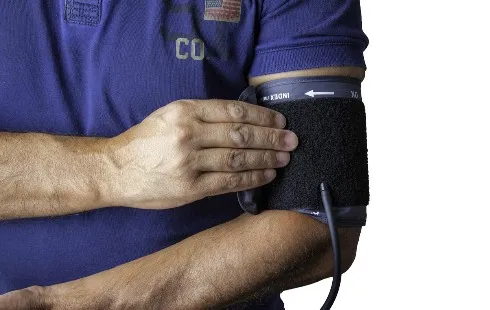
New to Germany? Avoid These Common Health Insurance Mistakes
Section: Health Insurance
The German Foundation for Patient Protection accuses the younger generations in Germany of a lack of willingness to be vaccinated. "Although the vaccine is now available for two million people every day, only 500,000 doses are being called up, because vaccination progress is just bubbling along in the young and middle generations," said Eugen Brysch, chairman of the foundation.
The president of the Professional Association of Pediatricians and Adolescents, Thomas Fischbach, called on the adult population as a whole to vaccinate in order to contain the pandemic and spare children and adolescents further restrictions.
"There is a great risk that children and adolescents will end up being the doormats again," Fischbach told the Funke Media Group newspapers. "Politicians should also put more pressure on this," he demanded, citing as examples "no vacation without quarantine, no visit to the theater without a PCR test."
Federal Education Minister Anja Karliczek (CDU) told the Funke newspapers, "Especially now that the infection figures are rising again, all adults should show solidarity with children and young people, if possible, by taking advantage of the vaccination offers to those who have not been vaccinated." The less the virus circulates among adults, the less it can become a danger for the younger ones, for whom partly no vaccines are approved or vaccinations are not recommended, he said.
Berlin's health senator Dilek Kalayci had told the Daily Mirror on Thursday that she "actually considers it a moral obligation of every Berliner to go to vaccination: For self-protection, for the protection of fellow human beings and for the preservation of the freedoms fought for together against Covid-19." Whether spontaneous vaccination, appointment vaccination in the Corona vaccination center, vaccination at the employer, at the established doctors or the various offers in the districts - "it has never been so easy and fast to get vaccinated", said the SPD politician.
Hans demands: Vaccination refusers differently than vaccinated treat
Patient protectionist Brysch, on the other hand, told the New Osnabrück Newspaper, referring to all adults, that there have been repeated complaints that the young have to forego their freedom in favor of the elderly. The fact that their willingness to be vaccinated is now so low shows "that there was no truth in the accusation.
The over-60s, on the other hand, would "do their part to fight the pandemic with an expected nearly 90 percent complete vaccination rate." Already, 85 percent of this age group had accepted the vaccination offer.
Saarland's Minister-President Tobias Hans (CDU) told "Editorial Network Germany" that vaccination refusers should not be given back the same freedom rights as vaccinated people in the future. "They have to pay for rapid tests, for example, or cannot attend every event," he said. He added that it cannot be "that nothing changes for vaccinated people just because society has to make permanent allowances for refusers."
The chairman of the German Association of General Practitioners, Ulrich Weigeldt, advocated for smarter ways to motivate citizens to vaccinate. "I miss a communication in Germany that is motivated by positive messages and does not always just rely on disaster alarms," he told "Editorial Network Germany."
Currently, about 60 percent of the German population has been vaccinated at least once against the coronavirus, according to the Robert Koch Institute (RKI). 48.5 percent have full protection, for which a second vaccination is necessary with most vaccines. The RKI estimates that herd immunity is achieved at a vaccination rate of more than 80 percent.
Image by Marion Knoche

Section: Health Insurance

Section: Health

Section: News

Section: Arts

Section: Arts

Section: Politics

Section: Politics

Section: News

Section: Politics

Section: Health Insurance
Health Insurance in Germany is compulsory and sometimes complicated, not to mention expensive. As an expat, you are required to navigate this landscape within weeks of arriving, so check our FAQ on PKV. For our guide on resources and access to agents who can give you a competitive quote, try our PKV Cost comparison tool.
Germany is famous for its medical expertise and extensive number of hospitals and clinics. See this comprehensive directory of hospitals and clinics across the country, complete with links to their websites, addresses, contact info, and specializations/services.
Offene Wunde is a documentary theater piece about the attack at the Olympia Einkaufszentrum (OEZ) by Tunay Önder and Christine Umpfenbach. On July 22, 2016, a perpetrator motivated by racism killed nine young people from Munich: Armela, Can, Dijamant, Guiliano, Hüseyin, Roberto, Sabine, Selçuk,...



No comments yet. Be the first to comment!